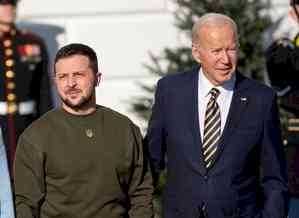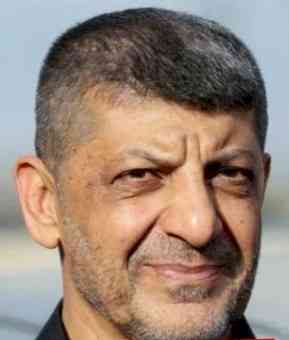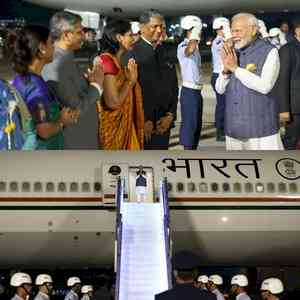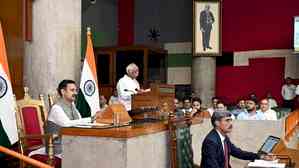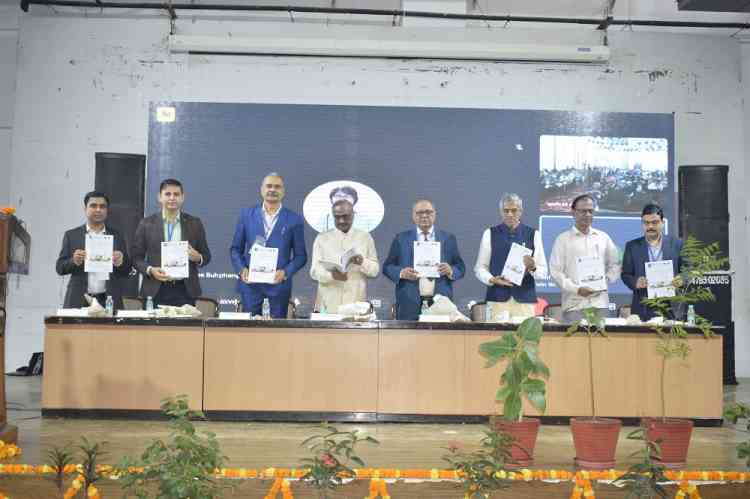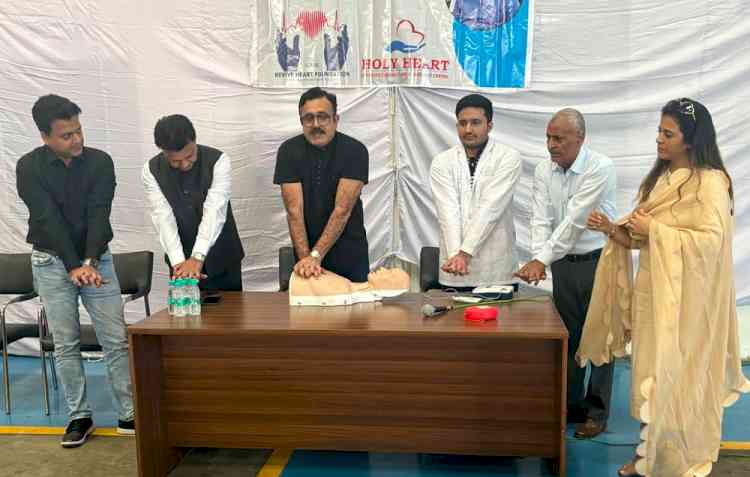Sheikh Hasina, the dynamic PM of B'desh, turns 76
Bangladesh Prime Minister Sheikh Hasina turned 76 on Wednesday, bringing the spotlight back on many of her success stories, including scripting a socially inclusive economic turnaround for the nation which turned 50 this year.

Dhaka, Sep 28 (IANS) Bangladesh Prime Minister Sheikh Hasina turned 76 on Wednesday, bringing the spotlight back on many of her success stories, including scripting a socially inclusive economic turnaround for the nation which turned 50 this year.
After efficiently tackling the challenge posed by the Covid-19 pandemic, as endorsed by top global bodies including the WHO, the country's next battle to avert the looming fears of a global recession has come under scrutiny with a singular observation -- under Hasina, Bangladesh is better poised to overcome the impending crisis as compared to many other emerging and developed economies.
Hasina will also be remembered for her role in the restoration of democracy in the country by bringing down a local military regime -- just like her father Sheikh Mujibur Rahman did with the Pakistani military junta -- and then sustaining it against the persisting threats from radical Islamist forces who try to destabilise the country with violent agitations, terror attacks and systematic disinformation.
Former President of India, late Pranab Mukherjee, whom Hasina considered as her 'Obhibhabok' (guardian), once told some journalists, including this writer, to imagine what Angela Merkel or Jacinda Ardern would have done had they faced the lurking threats of assassination that Hasina faced and survived.
Considering her first term in power (1996-2001), coupled with her third straight term since 2009, Hasina is the longest-serving woman leader across the globe, longer than Angela Markel of Germany.
Mukherjee had said that when it comes to 'raw courage', Hasina is comparable to only Indira Gandhi who refused to take off her Sikh bodyguards despite intelligence warnings of a lurking physical threat after Operation Blue Star.
Maybe we can add Brazil's Dilma Rousseff, who suffered intense torture in military prison (hung upside down and beaten up frequently), before reaching the top.
Hasina is deeply religious, though her politics is firmly secular. And it is believed that her spiritual disposition is the source of her courage.
Despite being arrested without a warrant by the military-backed caretaker government, and the baseless propaganda by leading outlets like The Daily Star, the overwhelming public support enjoyed by Hasina never diminished.
From giving birth to her son in virtual house arrest by Pakistani occupational forces, to witnessing the gruesome murders of her parents, brothers and other near ones by pro-Pakistan elements -- Hasina's life was undoubtedly more challenging than most other female leaders of her time.
For someone who had seen almost her entire family getting wiped out in a violent coup in 1975, continuing in politics was indeed a tough decision.
Equally challenging was the decision to return to Bangladesh six years after her family members were assassinated. Each of these decisions required not just courage, but also steely determination to uphold and build on her father's legacy and a deep faith in her destiny.
Soon after her return in 1981, Hasina had to wage a battle to free the people of Bangladesh from the clutches of military dictator General Hussain Muhammad Ershad, who seized power as head of the army during a bloodless coup against President Abdus Sattar in 1982.
Till the downfall of Ershad in 1990, Hasina crisscrossed almost every nook and corner of the country to reach out to the masses. Her arduous decade-long struggle equipped her to address the needs of the people languishing even in the remotest part of the nation.
Possibly, her father Sheikh Mujibur Rahman's trait to travel across the nation then known as East Pakistan to rope in the masses to join the fight for freedom against Pakistan offered the lesson for Hasina that "if you want to serve the people, go to their doorsteps".
A faithful Bengali housewife with some exposure in student politics, Hasina not only returned to her country at great personal risk, but also re-organised her father's party, Awami League, before toppling the Ershad military regime.
She has ruled Bangladesh for three terms since and is now into her fourth term. "All because Allah's wishes," Hasina would say.
But analysts see in her success not only courage and determination, but also the presence of a sharp analytical mind which can plan ahead of time and anticipate challenges.
Hasina is a fast learner as well, as her policies on combating climate change would indicate.
Her detractors blame Hasina for creating a 'police state' and haul her up for 'forced disappearances' and 'extra-judicial executions', but sources close to her argue that she has no choice but to resort to tough policing to keep Islamist radicals at bay.


 IANS
IANS 
